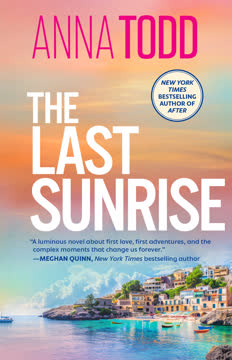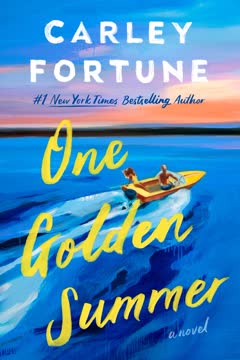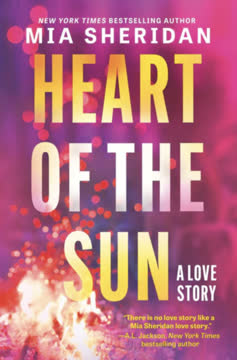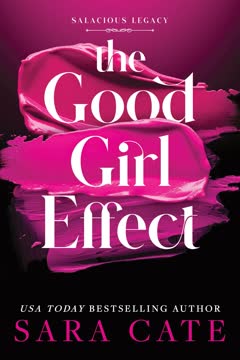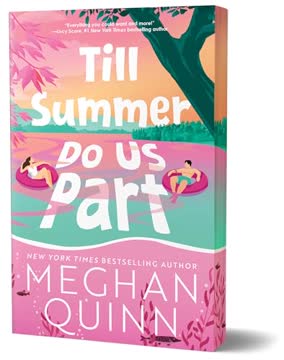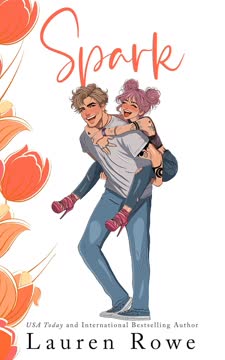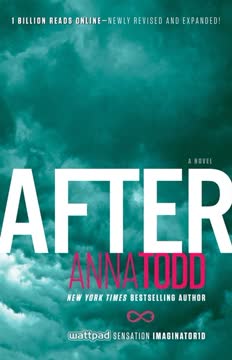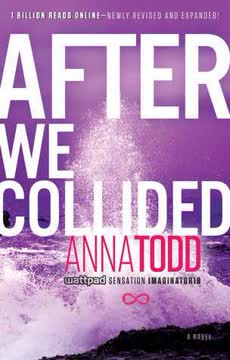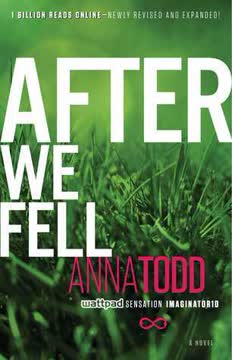Plot Summary
Prologue: Floating Toward Forgiveness
The novel opens with Oriah, a young woman burdened by illness and emotional pain, floating in the ocean and reflecting on the nature of forgiveness, bitterness, and the relentless cycles of destruction and renewal. The water is her only refuge from the injustice and resentment she feels—toward her body, her fate, and the world. She envies the ocean's ability to forgive and return, no matter how it's mistreated, and wonders if she could ever find such peace. This moment sets the tone for a story about healing, letting go, and the search for connection and meaning in the face of mortality.
Arrival in Mallorca
Oriah, 23, arrives in Mallorca with her driven, emotionally distant mother, Isolde, for a summer that promises change. Used to a life of privilege but also isolation and illness in Texas, Oriah is both excited and anxious about this new chapter. The luxury of their trip contrasts with Oriah's longing for authenticity and connection. The mother-daughter dynamic is tense: Isolde is consumed by work, while Oriah yearns for closeness and understanding. The island's beauty and the promise of freedom ignite hope in Oriah for transformation, adventure, and maybe even love.
Mother-Daughter Distance
As they settle into their eco-friendly hotel, Oriah observes the chasm between her and her mother. Isolde is preoccupied with business, orchestrating a major SetCorp deal that will change the island's landscape. Oriah, meanwhile, is left to her own devices, feeling both invisible and overprotected. She meets Amara, a vibrant hotel receptionist, whose authenticity and warmth offer a glimpse of the connection Oriah craves. The contrast between Isolde's controlled, polished exterior and Oriah's vulnerability is stark, and Oriah's hope for a deeper relationship with her mother grows, even as she doubts it will ever happen.
New Friendships, Old Wounds
Oriah's world expands as she befriends Amara, who introduces her to a circle of international friends and the island's hidden gems. Through Amara, Oriah is invited to experience Mallorca beyond the tourist facade, including a nude beach that challenges her comfort zone and self-image. These new friendships are a balm for her loneliness, but they also stir memories of loss—especially of her best friend Audra, whose fate with the same illness haunts Oriah. The chapter explores the tension between wanting to live fully and the fear of being hurt or left behind.
The Beach and the Stranger
On a solo beach day, Oriah encounters Julián, a local fisherman with a sharp tongue and a guarded heart. Their first interaction is prickly, marked by mutual suspicion and cultural misunderstandings. Yet, beneath the banter, there's an undeniable spark. When Oriah gets lost in the city with a dead phone, Julián reluctantly helps her find her way back, revealing both his annoyance with tourists and a reluctant sense of responsibility. Their chemistry is electric, but both are wary—Oriah of being vulnerable, Julián of being hurt by outsiders.
A Chance Encounter
Oriah and Julián's paths cross again at a local bar, thanks to Amara. Their initial antagonism gives way to curiosity and attraction as they're drawn into each other's orbits. A night of dancing, drinking, and a near-miss with danger brings them closer, exposing their vulnerabilities. Oriah's medical condition looms in the background, a secret she keeps from Julián. The chapter is charged with the thrill of new possibilities and the fear of what might happen if they let their guards down.
Summer of Firsts
With Julián as her guide, Oriah begins to shed her old skin. She tries new foods, explores the island's hidden corners, and allows herself to be seen—scars, heterochromia, and all. Their relationship deepens through shared adventures and honest conversations. Oriah's sense of self grows as she steps out of her mother's shadow and claims her own desires. Yet, the specter of her illness and the secrets she keeps threaten to disrupt this fragile happiness.
Secrets and Revelations
As Oriah and Julián grow closer, the truth about their families comes to light. Isolde's business ambitions are revealed to be directly at odds with Julián's family's livelihood—SetCorp's new resort will destroy the Garcia fishing business. The revelation is explosive, fracturing trust and reigniting old wounds. Oriah is caught between loyalty to her mother and her love for Julián. Both families are forced to confront the legacies of loss, ambition, and the choices that shaped them.
Falling for Julián
Despite the turmoil, Oriah and Julián's bond intensifies. They share their deepest fears and hopes, making love under the stars and vowing to fight for each other, even as the future is uncertain. Oriah's illness becomes impossible to ignore, and she finally confides in Julián about her condition and the trauma of losing Audra. Julián, in turn, reveals his own struggles with depression and the weight of family expectations. Their love becomes a sanctuary, but also a source of pain, as they realize how much they have to lose.
Family Histories Collide
The SetCorp deal comes to a head, sparking protests and a public confrontation between Isolde and Mateo, Julián's father. Old lovers, now adversaries, they lay bare decades of regret, ambition, and heartbreak. Oriah witnesses the cost of her mother's choices and the pain they've caused. The protest fails to stop the deal, and Julián, devastated by the loss of his family's legacy and feeling betrayed by Oriah's connection to SetCorp, withdraws into himself. Oriah is left reeling, her world unraveling as she faces the limits of love and forgiveness.
The Protest and the Fallout
In the aftermath, Oriah suffers a seizure, her health deteriorating as stress and heartbreak take their toll. Hospitalized, she is forced to confront her mortality and the choices she's made. Isolde, wracked with guilt, finally opens up about her own past—her love for Mateo, her reasons for leaving Mallorca, and the fear that shaped her life. Mother and daughter begin to reconcile, finding common ground in their shared pain and longing for connection. Julián, meanwhile, spirals into depression, unable to face Oriah or his own grief.
Seizures and Second Chances
Oriah's condition worsens, and she faces a life-or-death decision: undergo a risky brain surgery or accept her fate. With Julián and Isolde by her side, she chooses to fight, inspired by the love she's found and the future she wants. The surgery is harrowing, and the outcome uncertain. In the liminal space between life and death, Oriah reflects on her journey, the people she loves, and the beauty of fleeting moments. When she awakens, memory and self intact, it feels like a miracle—a second chance she never expected.
The Last Sunrise
Recovery is slow, but Oriah is transformed. She and Julián reunite, their love deepened by all they've endured. Isolde and Mateo find their own path to forgiveness and healing, rekindling a connection that was never truly lost. The SetCorp deal is ultimately derailed, and the Garcia family's legacy is preserved. Oriah, Julián, and their families gather to celebrate life, love, and the power of second chances. The sunrise, once a symbol of endings, now marks a new beginning.
Recovery and Reconciliation
Oriah and Isolde rebuild their relationship, learning to see and accept each other as they are. Julián confronts his depression and commits to therapy, determined to break the cycle of running from pain. Amara and Prisha, too, find their own version of happiness, choosing love despite uncertainty. The families blend, creating a new, chosen family rooted in acceptance and hope. Oriah finds purpose in teaching dance to local children, honoring both her past and her future.
Choosing to Live
Oriah and Julián, now partners in every sense, choose to live fully, cherishing each sunrise and each other. They travel, build a home, and dream of a future together, even as they accept the limits of time and health. The scars of the past remain, but they are no longer wounds—just reminders of how far they've come. The story closes with Oriah reflecting on the gift of being seen, loved, and alive, and the promise to never take a single moment for granted.
Epilogue: A New Beginning
One year after her near-death, Oriah is thriving in Mallorca, surrounded by family and friends. Isolde and Mateo are together, Amara and Prisha are happy, and Julián and Oriah are building a life rooted in love, honesty, and gratitude. The Garcia boat is renamed in Oriah's honor, and the family's legacy is secure. Oriah, once resigned to a short, lonely life, now embraces each day as a gift. The last sunrise is not an ending, but the start of everything she never dared to hope for.
Characters
Oriah Pera
Oriah is a 23-year-old woman living with tuberous sclerosis, a rare genetic disorder that has shaped her life with illness, isolation, and a sense of impending mortality. Raised by her ambitious, emotionally distant mother, Oriah is both privileged and profoundly lonely. Her journey is one of self-discovery, as she seeks connection, love, and meaning beyond the confines of her illness and her mother's expectations. Oriah is introspective, witty, and deeply empathetic, but also guarded and afraid of being a burden. Her relationship with Julián awakens her desire to live fully, even as she grapples with the fear of loss and the limits of time. Through love, friendship, and the courage to face her past, Oriah transforms from a passive observer of life to an active participant, choosing hope over resignation.
Julián Garcia
Julián is a local Mallorcan fisherman, fiercely protective of his family's legacy and skeptical of outsiders. Scarred by the loss of his mother and the threat of SetCorp's development, he is wary of trusting anyone—especially privileged tourists like Oriah. Beneath his gruff exterior, Julián is deeply sensitive, intelligent, and loyal. He struggles with depression and the weight of family expectations, but finds solace and purpose in his connection with Oriah. Their love challenges him to confront his fears, open his heart, and fight for happiness, even when it seems impossible. Julián's journey is one of learning to accept help, embrace vulnerability, and believe in the possibility of healing and new beginnings.
Isolde Pera
Oriah's mother, Isolde, is a self-made businesswoman who rose from poverty in Mallorca to become a powerful executive at SetCorp. Her drive is fueled by a fear of scarcity and a desire to protect her daughter at all costs. Isolde's emotional distance and workaholism are both shields and wounds, rooted in her own history of loss and regret—especially her love for Mateo, Julián's father, and the choices that separated them. Throughout the novel, Isolde is forced to confront the consequences of her ambition, the pain she's caused, and the possibility of forgiveness. Her arc is one of gradual softening, as she learns to see Oriah as a person, not just a patient, and to reclaim the parts of herself she buried long ago.
Mateo Garcia
Julián's father, Mateo, is the patriarch of the Garcia fishing family. He is a man of principle, deeply connected to the land and sea, and marked by the loss of his wife and the enduring love for Isolde. Mateo's life is a testament to resilience and sacrifice, as he fights to preserve his family's legacy in the face of corporate encroachment. His relationship with Isolde is fraught with regret and longing, but also forgiveness and hope. Mateo serves as a bridge between past and present, tradition and change, and his wisdom helps guide both Oriah and Julián toward healing.
Amara
Amara is a German expat and the hotel receptionist who becomes Oriah's first real friend in Mallorca. She is unapologetically herself—funny, bold, and full of life. Amara's openness and warmth help Oriah break out of her shell and embrace new experiences. Her own history of heartbreak and reinvention makes her a kindred spirit to Oriah, and her relationship with Prisha models the courage to love despite uncertainty. Amara is the emotional glue of the friend group, always ready with a joke, a drink, or a shoulder to cry on.
Prisha
Prisha is a medical student from India living in Sweden, who becomes Amara's love interest. She is intelligent, empathetic, and supportive, offering both practical advice and emotional comfort. Prisha's presence in the story highlights the theme of chosen family and the importance of building connections across cultures and distances. Her relationship with Amara is a source of joy and inspiration for Oriah, showing that love can flourish even in the face of impermanence.
Lena
Lena is Isolde's long-time executive assistant, a fixture in both the business and personal lives of the Pera family. She is the steady hand behind Isolde's success, managing crises with calm and compassion. Lena serves as a surrogate aunt to Oriah, offering support and understanding when her mother cannot. Her loyalty is unwavering, but she is not afraid to speak the truth or advocate for what is right.
Audra
Audra was Oriah's best friend, also living with tuberous sclerosis, whose tragic fate haunts Oriah throughout the novel. Audra's memory is a source of both pain and motivation, shaping Oriah's fears about surgery and her reluctance to hope for a future. Through Audra, the story explores the impact of loss, survivor's guilt, and the importance of honoring those we love by choosing to live.
Fabio
Fabio is the bartender at the local lounge, known for his heavy-handed drinks and larger-than-life personality. He represents the vibrancy and unpredictability of Mallorca, offering both comic relief and a sense of community. Fabio's presence in the story underscores the importance of savoring joy and embracing the unexpected.
The Sea
While not a character in the traditional sense, the sea is a constant presence in the novel—a source of comfort, transformation, and metaphor. For Oriah, the ocean represents both escape and acceptance, a place where she can let go of fear and become part of something larger. The sea's cycles mirror the themes of renewal, forgiveness, and the beauty of impermanence.
Plot Devices
Dual Timelines and Intergenerational Echoes
The novel weaves together the stories of two generations—Oriah and Julián, Isolde and Mateo—showing how the choices and traumas of the past reverberate in the present. Letters, photographs, and family secrets serve as bridges between eras, revealing patterns of love, loss, and the struggle to break free from inherited pain. This structure allows the reader to see how healing is both personal and collective, and how forgiveness can ripple across time.
Enemies-to-Lovers and Forced Proximity
Oriah and Julián's relationship is built on initial antagonism, cultural clashes, and misunderstandings. Their forced proximity—through chance encounters, shared friends, and the smallness of the island—creates opportunities for vulnerability and growth. The slow burn of their romance is fueled by witty banter, mutual challenges, and the gradual dismantling of their defenses.
Illness as Catalyst and Metaphor
Oriah's illness is both a literal obstacle and a metaphor for the limits of control, the unpredictability of life, and the urgency to live fully. Seizures, hospitalizations, and the specter of death force characters to confront what matters most, stripping away pretense and prompting acts of courage, honesty, and love. The medical plotline is handled with sensitivity, balancing realism with hope.
Symbolism of Water and Sunrises
The sea, swimming, and the ritual of watching the sunrise recur throughout the novel, symbolizing renewal, forgiveness, and the possibility of new beginnings. Water is both a place of surrender and transformation, while the sunrise marks the passage of time and the promise of another chance. These motifs ground the story in a sense of place and underscore its emotional arc.
Letters, Photos, and Crosswords
Letters between Isolde and Mateo, old photographs, and Julián's crossword puzzles serve as tangible links to the past and tools for understanding the present. They represent the ways we try to make sense of our lives, preserve what matters, and communicate across distances—literal and emotional. These devices add texture and depth, inviting the reader to piece together the story alongside the characters.
Cyclical Structure and Foreshadowing
The novel's structure mirrors its themes: the prologue's meditation on floating and forgiveness is echoed in the final chapters, where Oriah's near-death experience becomes a catalyst for renewal. Foreshadowing is used to build tension—Oriah's sense of limited time, the threat to the Garcia family, the unresolved history between Isolde and Mateo—all pay off in moments of crisis and transformation. The cyclical return to the sea and the sunrise reinforces the message that every ending contains the seed of a new beginning.
Analysis
Anna Todd's The Last Sunrise is a luminous meditation on forgiveness, mortality, and the courage to live and love in the face of uncertainty. At its heart, the novel is about the tangled bonds between mothers and daughters, lovers and friends, and the ways we inherit both wounds and wisdom from those who came before us. Through Oriah's journey—from resignation to hope, from isolation to connection—the story explores the power of vulnerability, the necessity of self-acceptance, and the beauty of second chances. The Mallorcan setting, with its ever-present sea and vibrant community, becomes a character in its own right, offering both escape and belonging. Todd deftly balances romance, family drama, and coming-of-age themes, using illness not as a tragedy but as a lens that sharpens the value of each moment. The novel's message is clear: life is fleeting, imperfect, and often unfair, but it is also breathtakingly beautiful when we choose to embrace it fully, forgive ourselves and others, and let love—however brief—transform us. In a world obsessed with control and achievement, The Last Sunrise is a reminder that true freedom lies in letting go, showing up, and savoring the sunrise, again and again.
Last updated:
Review Summary
The Last Sunrise receives mixed reviews, with ratings ranging from 1 to 5 stars. Positive reviews praise the vivid coastal setting, emotional depth, and representation of chronic illness and mental health issues. Critics find the romance compelling, though some note insta-love elements. Negative reviews cite underdeveloped characters, slow pacing, and unrealistic plot points. The book is described as a summer romance with heavier themes than expected, exploring self-discovery, family relationships, and living with chronic illness. Overall, readers appreciate Todd's growth as an author but opinions vary widely.
Similar Books
Download PDF
Download EPUB
.epub digital book format is ideal for reading ebooks on phones, tablets, and e-readers.
